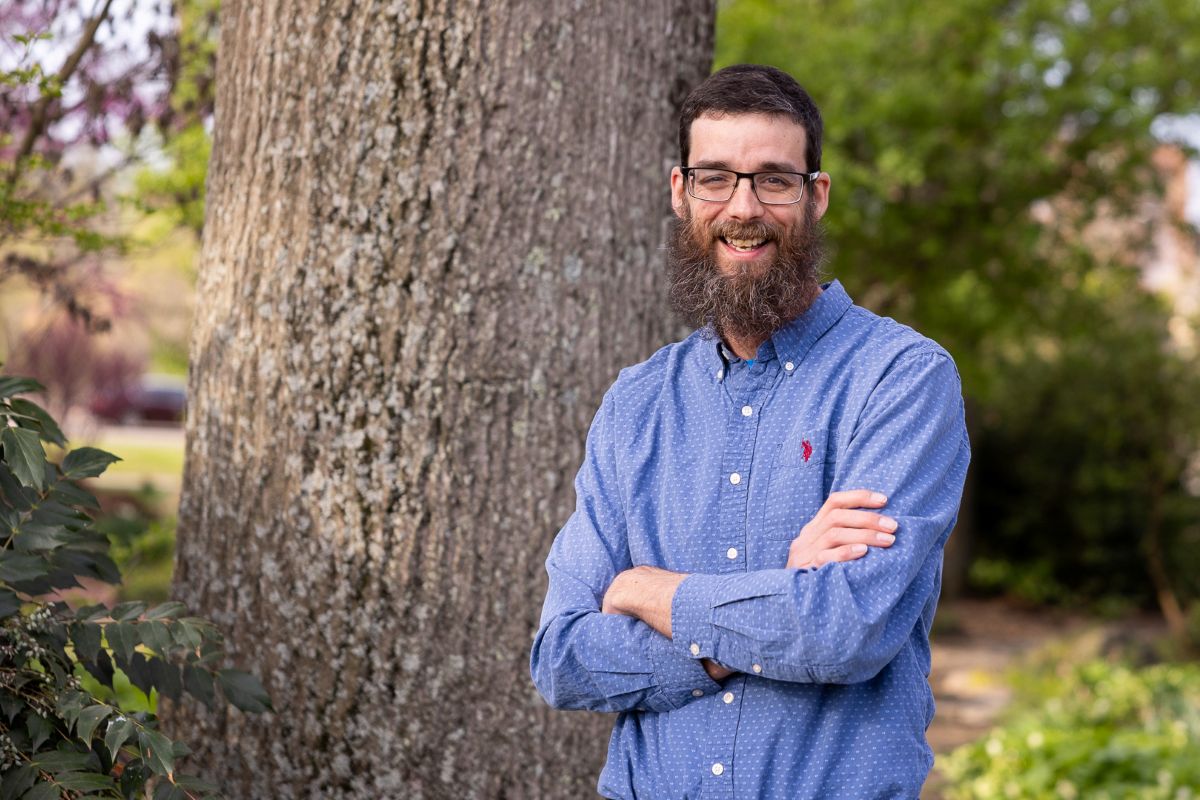
UT Extension Knox County Agriculture and Natural Resources agent champions tree care through hands-on arboriculture education and community outreach
Where are you from, and how did your career lead you to UTIA?
I am a Tennessee native, originally from Nashville, but I always knew that East Tennessee would be my “forever home”. Any chance I had, I would get in the car and drive east as the mountains were always calling. After working in the tree industry in Nashville for nearly 20 years, I took baby steps to get to UTIA. Since I already had a career, a fascination, and an inherent love of trees, I started by studying and passing the International Society of Arboriculture (ISA) Certified Arborist exam in 2010. Soon thereafter, I found myself enrolling in college as a non-traditional student while still working full time. Slowly, I began to educate myself—ultimately completing an AS in Horticulture (2014), a BS in Plant and Soil Science (2016), and a MS in Botany (2019). Much like a snowball, once things started rolling, they did not stop. In January of 2020, I found myself making the final move to east Tennessee working in the Knox County UT-TSU Extension Office.
What inspired you to pursue a career in commercial horticulture and arboriculture?
From a young age, I was always captivated by the great outdoors. Hiking, camping, riding ATVs, kayaking, and swinging from tree vines were all memorable activities for me, so it just made sense that I would soon find myself working outdoors in the arboriculture industry (only swinging from a rope now)! I knew that a lab space or an office role would just leave me scratching at the walls to get outside!
What does a typical day look like for you?
My days at the Knox County UT-TSU Extension Office are highly variable. In fact, I would even say that one of the greatest benefits of working with UTIA is that truly no two days are the same. Oftentimes, you can find me out in the field working with my commercial horticulture stakeholders (fellow ISA Certified Arborists, professional landscapers, and nursery growers), and other times, I may be conducting educational presentations and/or pruning and planting demonstrations that promote best management practices in the landscape. Still, other days, you may well find me in the office preparing for these presentations and other various meetings alongside my collaborators and community partners.
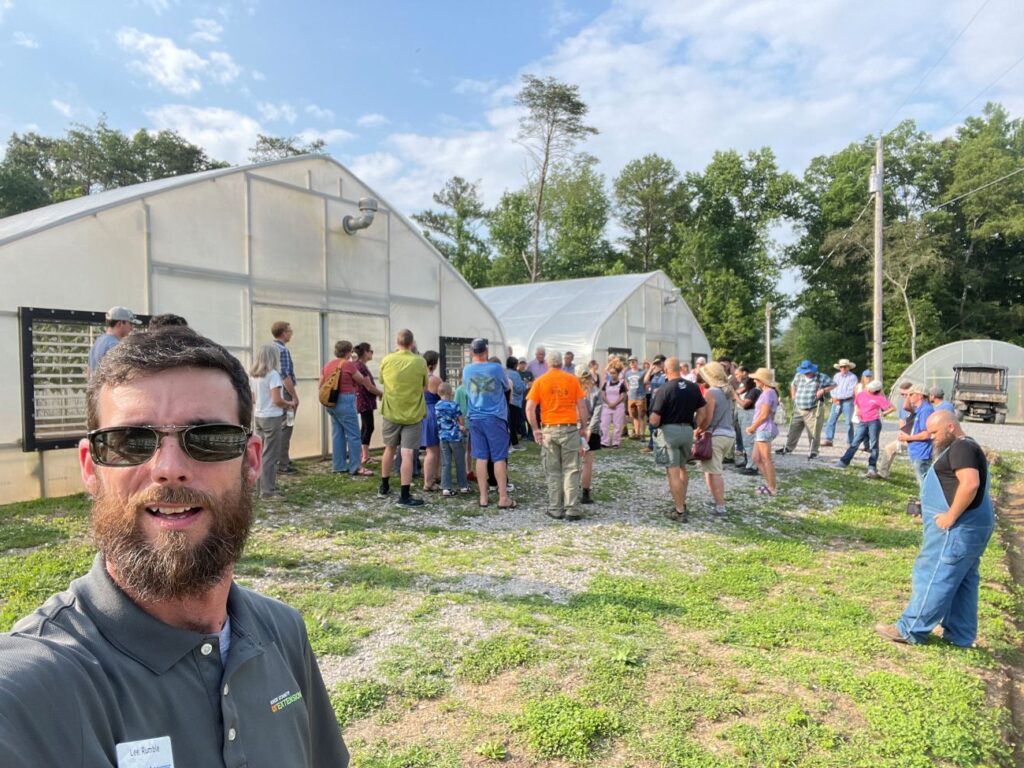
As an International Society of Arboriculture Certified Arborist, what are some of the most common tree care mistakes you see, and how can homeowners avoid them?
By far, the most common mistakes that I see made in arboriculture are improper planting practices—e.g., planting trees too deeply, improper plant spacing, ignoring the cultural requirements of the plant, and/or mulching practices that are all done horribly wrong. Unfortunately, this starts many of our trees off on the wrong foot from day one. Our trees have a tough enough time in urban and suburban environments, so really focusing on the cultural requirements of the plant and installing that plant material correctly can go a long way in promoting the long-term vitality and vigor of our trees.
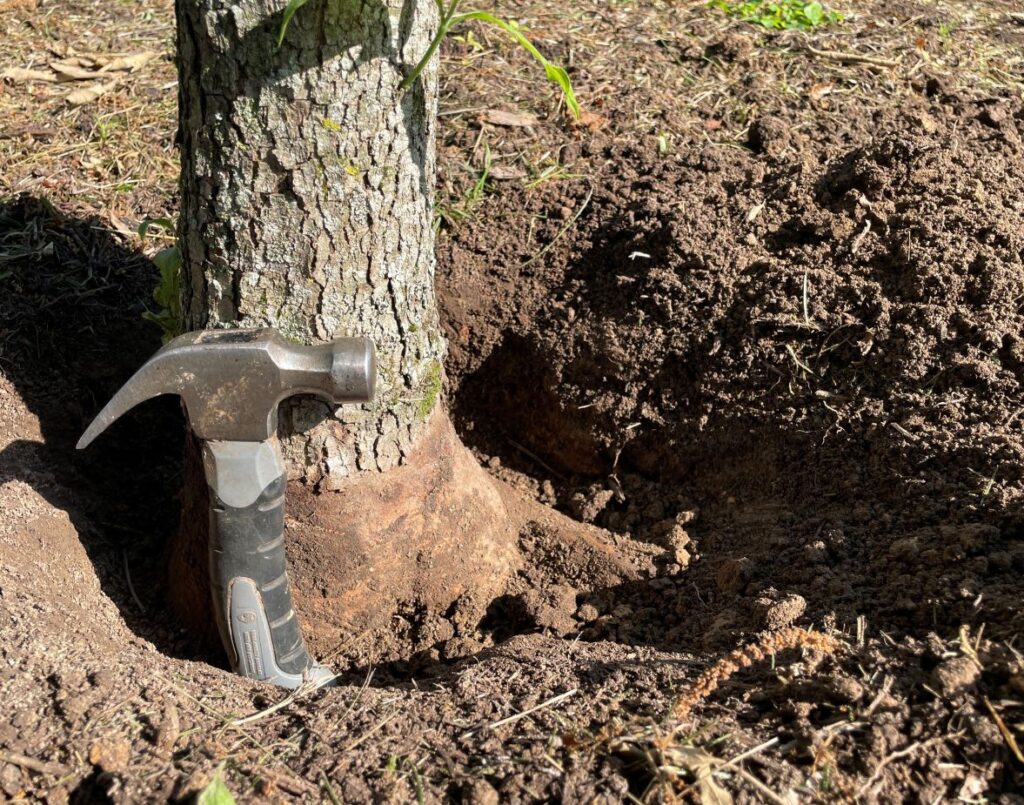
What role does UT Extension play in educating the public about sustainable landscaping and urban forestry, and how do you contribute to those efforts?
There are so many ways in which UT Extension educates the public. While we are well known for working with our individual stakeholders at the county level, I feel confident that our reach is greatly expanded across the state due to my wonderful colleagues and the state specialists who help to support our mission. I sit on numerous committees and internal workgroups that all have a focus on supporting sustainability in the landscape, both in terms of horticulture and arboriculture.
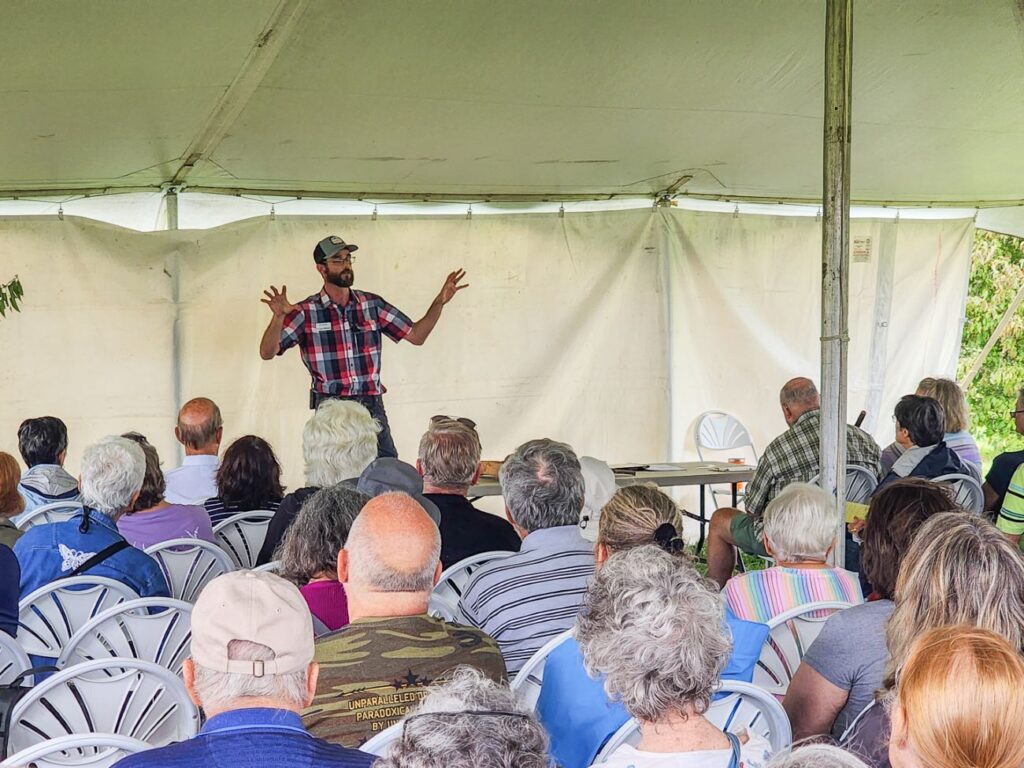
As a member of the Sustainable Landscape Workgroup and the Residential and Community Forestry Workgroup (both within UTIA), these two workgroups really focus heavily on timely newsletters, magazine articles, publications, and educational training events that all help to support and benefit the residents of our state. I work with non-profits, local civic groups and garden clubs, parks and recreation departments, and have been an ex-officio member of our local Tree Board for the past five years—all of which helps to further broaden UT Extension’s reach within the community.
What is one fact about your field you wish everyone knew?
One fact that I wish more people knew about the field of arboriculture, is how we must be “proactive” and not “reactive” to a tree’s needs. All too often, I am getting phone calls and emails about situations that many times could have been prevented early in the life of the tree. From planting depth to co-dominant stems, to branches that rub against one another, if we are able to take advantage of an early tree pruning process, known as “structure pruning”, oftentimes, we can cut off many of the problems that we see later in life, once trees mature. Remember, too, that we don’t plant trees for ourselves, but instead for future generations, so focus on leaving behind assets, not liabilities in the landscape.
What has been one of your proudest moments during your time working for UT Extension?
I am most proud of my experiences and time spent in the Tennessee Extension Leadership Academy (TELA). For 2023-2024, I was selected as one of the inaugural cohorts of only 20 individuals across the state for this year-long leadership journey. Through this project, we learned more about ourselves, how to help lead others to greatness, and how to use this information to ultimately lead within the organization. Being held in all three regions of the state, this leadership journey was action-packed, with engaging speakers, educational activities, supplemental homework, and some of the most wonderful tour stops across Tennessee.

What are some of the most rewarding aspects of working with the community through UT Extension, and what challenges do you face in your role?
For me, the most rewarding aspect of my role is simply the people that I work with! I’ve spent my entire life in Tennessee, so this truly is where I live, work, and play. Being a part of UT Extension allows me to work with like-minded people across the state that all share a common goal of making Tennessee a better place. A second added benefit to working with UT Extension is that not only do I get to educate others, but just as importantly, I am also continually educating myself! While we often think of ourselves as educators, I think the greatest rewards come when we get those harder questions that we may not know the answer to immediately but instead have to do some “homework” to track down the right answers.
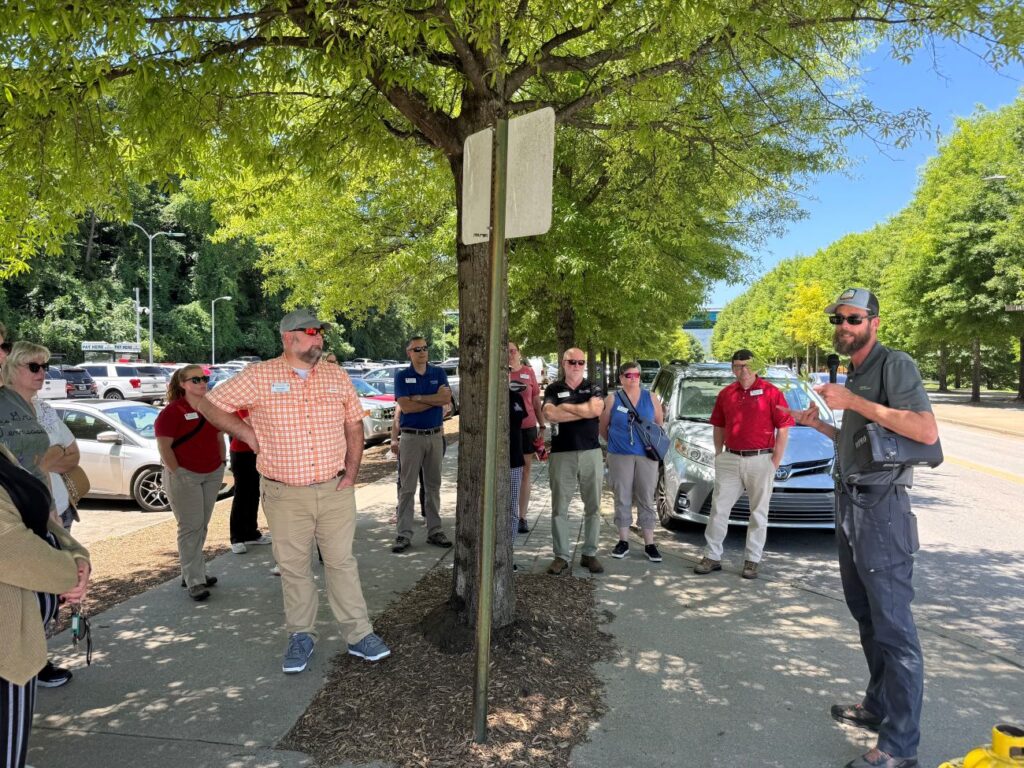
My major challenges are simply trying to keep up with the vastness that is UT Extension. With numerous folks moving to Tennessee daily, there is never a shortage of new work calls and emails coming into our office—especially in early spring and into the summer. With many of these individuals new to our state, we are often starting them off at ground level; helping them to understand our geography, local climactic patterns, our soils, the most common pest and disease issues we see, and how to select appropriate species (and/or cultivars) which will thrive here in our area.
For students or young professionals interested in arboriculture or Extension work, what advice would you give about entering this field?
Find where your passions lie first and foremost. You know, I feel like so often students may enter into a field of study that they may not have their heart in fully, but still, they spend countless hours working towards that goal to only find out they just do not enjoy the field later. I think testing out the waters, by job shadowing, completing internships, or even entering the workforce at an early age can be hugely beneficial. Once you truly find a field of work that you enjoy, it sure does make the learning process much more interesting and the materials are also much easier to digest. Lastly, having a strong work ethic goes much further than you might think, so learn to enjoy the learning process—both the easy and the hard parts.
What do you like to do outside of work and/or what is a fun fact about yourself that your colleagues may not know?
Outside of work, I enjoy various things. As a professional tree climber (for nearly 20-years), as you may guess, sitting on the couch watching TV, just doesn’t cut it for me! I enjoy time working outdoors on our farm and spending time with my family. Commonly, you will find us out together hiking, camping, completing projects, and kayaking. Most recently, we were gifted the 900-mile map of Great Smoky Mountains National Park (which is a checkbox list of all trails in the park to complete). This is a lofty goal, but one we are seeking to accomplish together.
